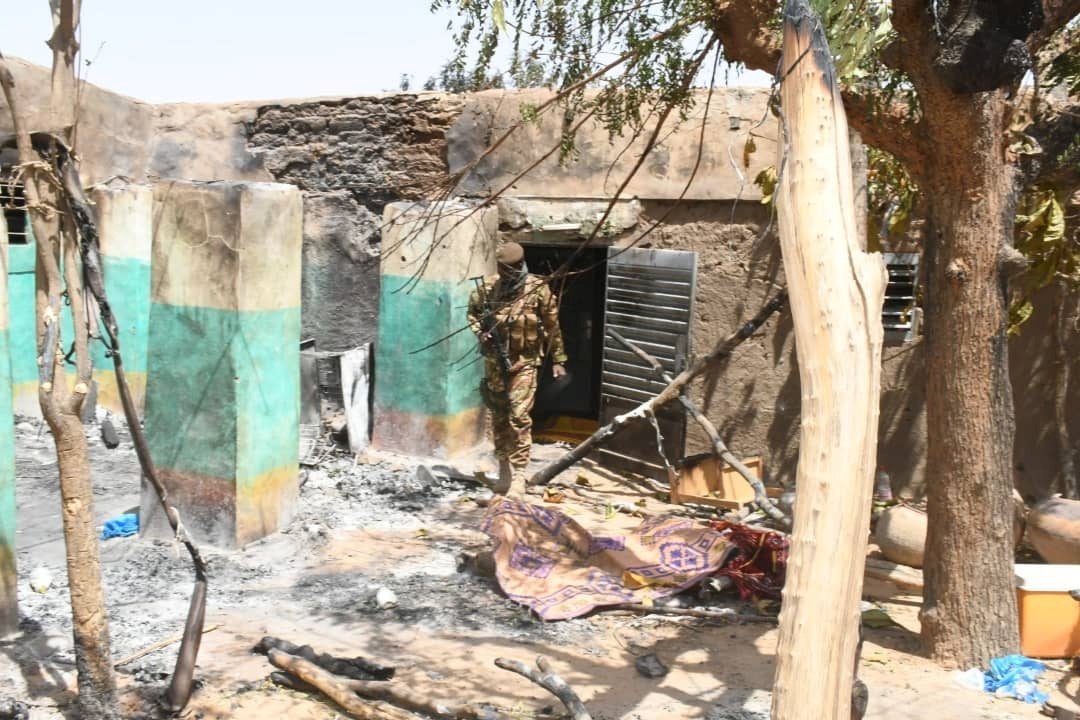Mali attack: Gunmen kill more than 150 villagers
Woman and children burned in homes as violence escalates between Dogon hunters and Fulani herders

More than 150 people were killed in an attack by gunmen on a Fulani village in central Mali in one of the worst atrocities in the country's recent history, a government spokesperson said.
The attack, in which women and children were burned in their homes, marks an escalation in violence between Dogon hunters and Fulani herders that killed hundreds of civilians last year.
The violence is now spreading across Africa's Sahel, the region between the Sahara to the north and the continent's savannas to the south.
“The official death toll is 157,” government spokesman Amadou Kotia said on Tuesday.
On Saturday, officials said that about 134 had been killed, although they expected that number to rise.
The Prosecutor of the International Criminal Court, Fatou Bensouda, said this week that the crimes may fall under the court's jurisdiction and that a delegation will be sent to Mali.
A UN security council mission was already visiting the country to seek solutions to the violence when the attack took place.
An official from a nearby town said that armed men, dressed as traditional Dogon hunters, attacked villages populated by Fulani herders. The Dogon suspect the Fulani of harbouring Islamist extremists, charges the Fulani deny.
The attack came less than a week after an assault by jihadists on an army post killed at least 23 soldiers, also in Mali's central region. That attack was claimed by an al-Qaeda affiliate.
Tacit outsourcing of the fight against jihadists to vigilante groups with scores to settle has unleashed ethnic violence across the Sahel. In neighbouring Burkina Faso at the end of December, an ethnic Mossi militia group killed dozens of Fulani in revenge for the killing of a village chief by jihadists.
Malian president Ibrahim Boubacar Keita responded to the attack by replacing two generals and disbanding an anti-jihadist vigilante group called Dan Na Amassagou, whose Dogon fighters were suspected of being behind the massacre.
The group has denied its members were involved and rejected the government's dissolution.
Marcelin Guinguere, a Dan Na Amassagou spokesman, told Reuters: “We will continue to exert our activities as per usual, ensuring the protection of populations until the state decides to live up to its security role.”
He said the attack was carried out by Fulani-led jihadists disguised as Dogon.

Jihadist groups linked to al-Qaeda and Islamic State have exploited ethnic rivalries in Mali and its neighbours Burkina Faso and Niger in recent years to boost recruitment.
Some 4,500 French troops are based in the Sahel, most of them in Mali. The US also has hundreds of troops in the region.
Reuters
Join our commenting forum
Join thought-provoking conversations, follow other Independent readers and see their replies
Comments
Bookmark popover
Removed from bookmarks